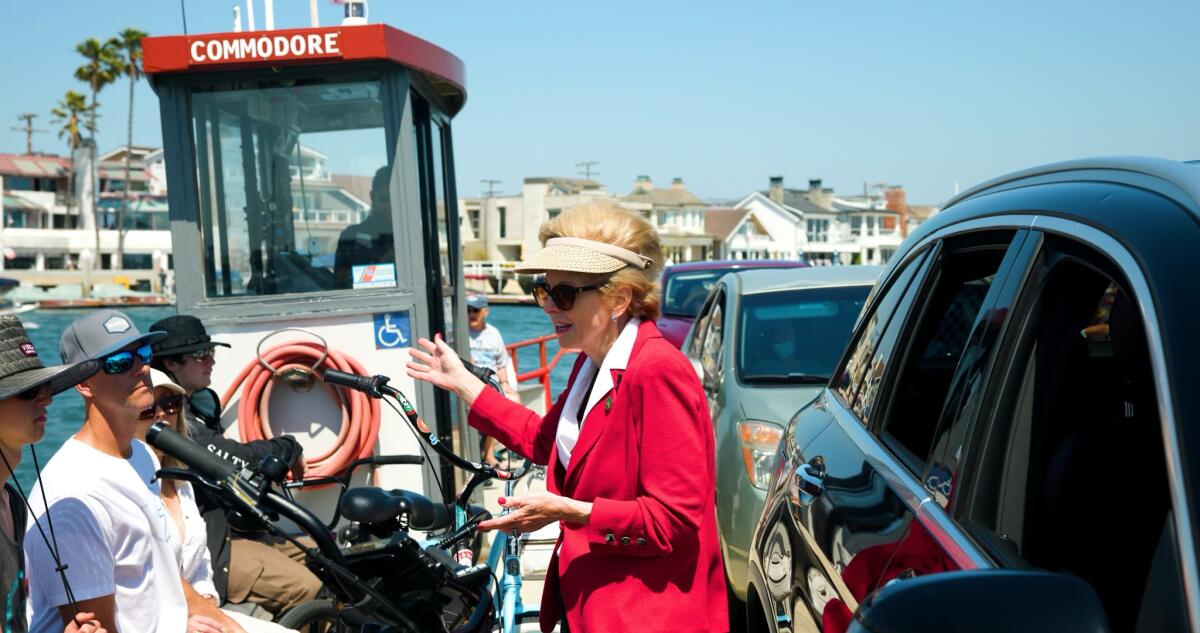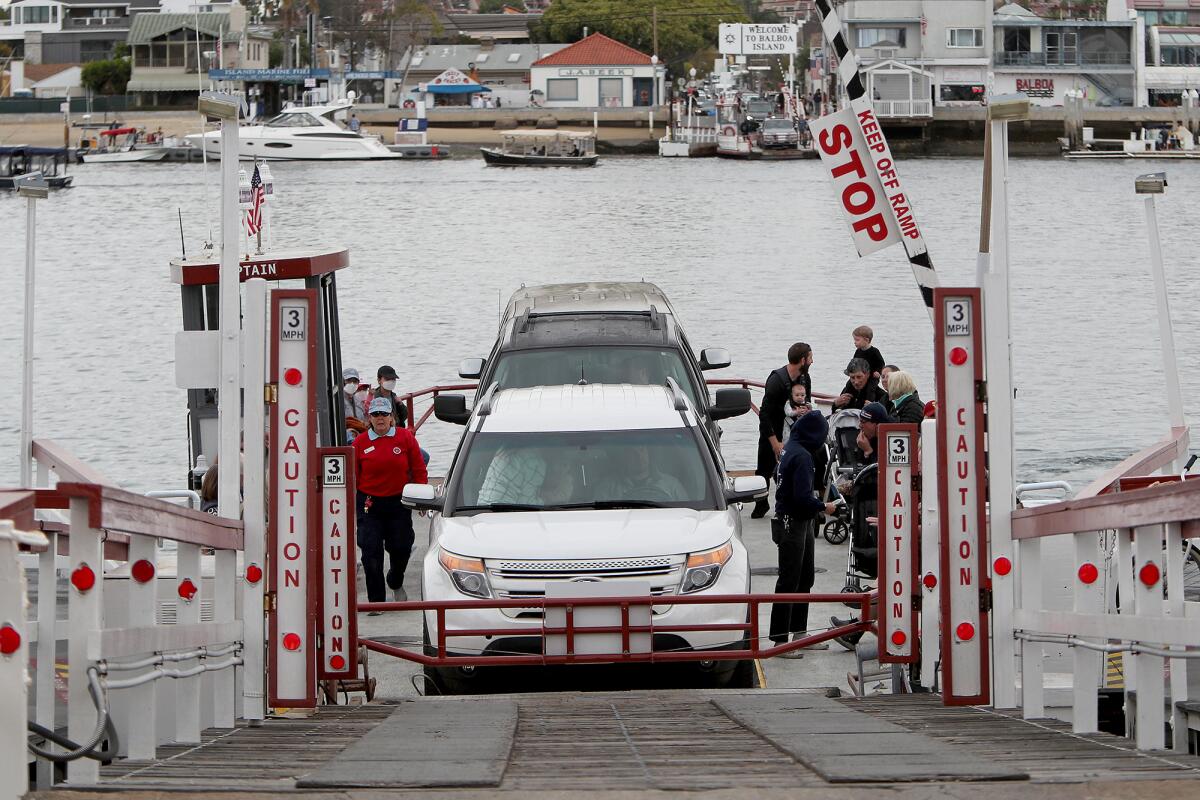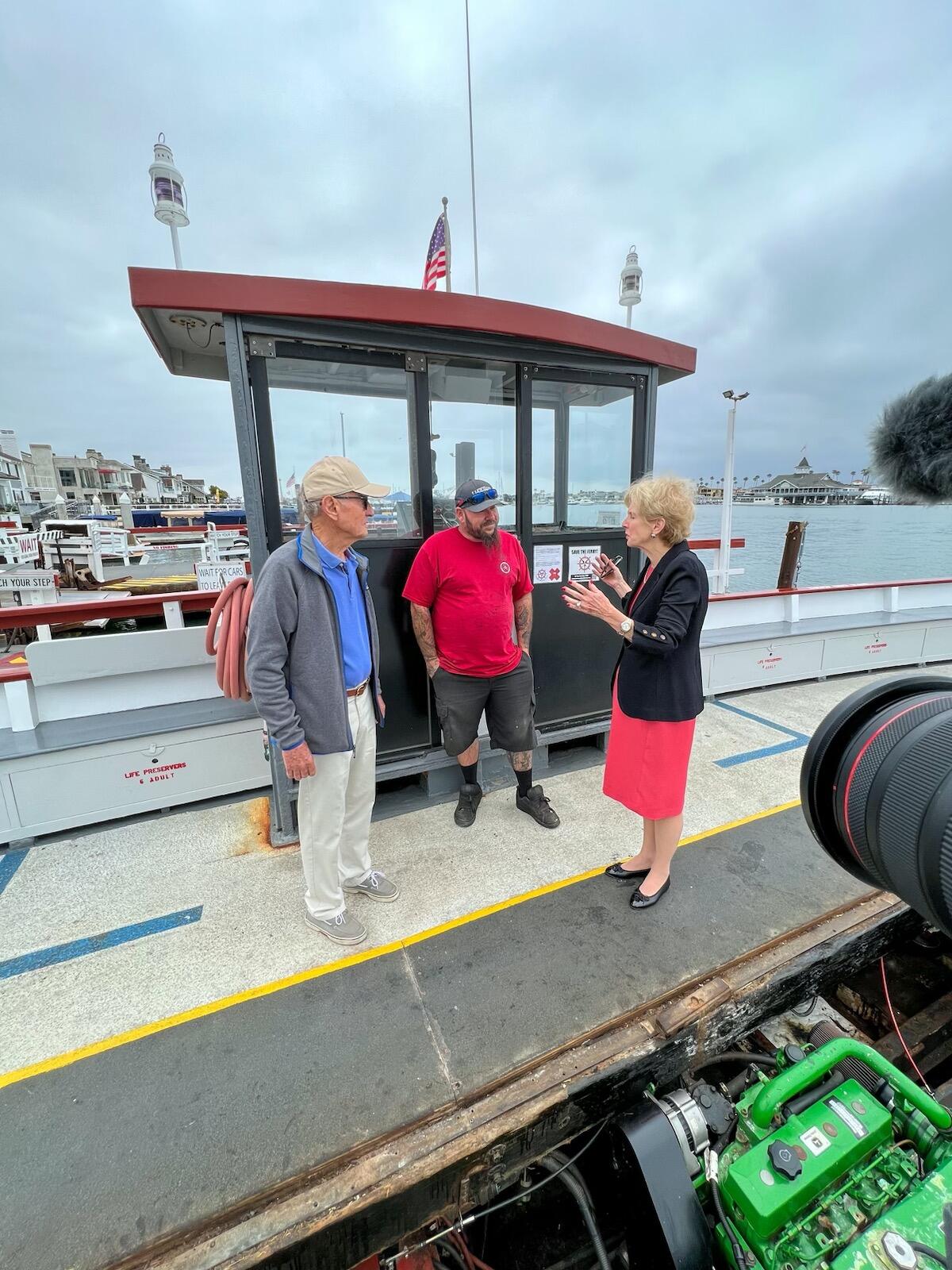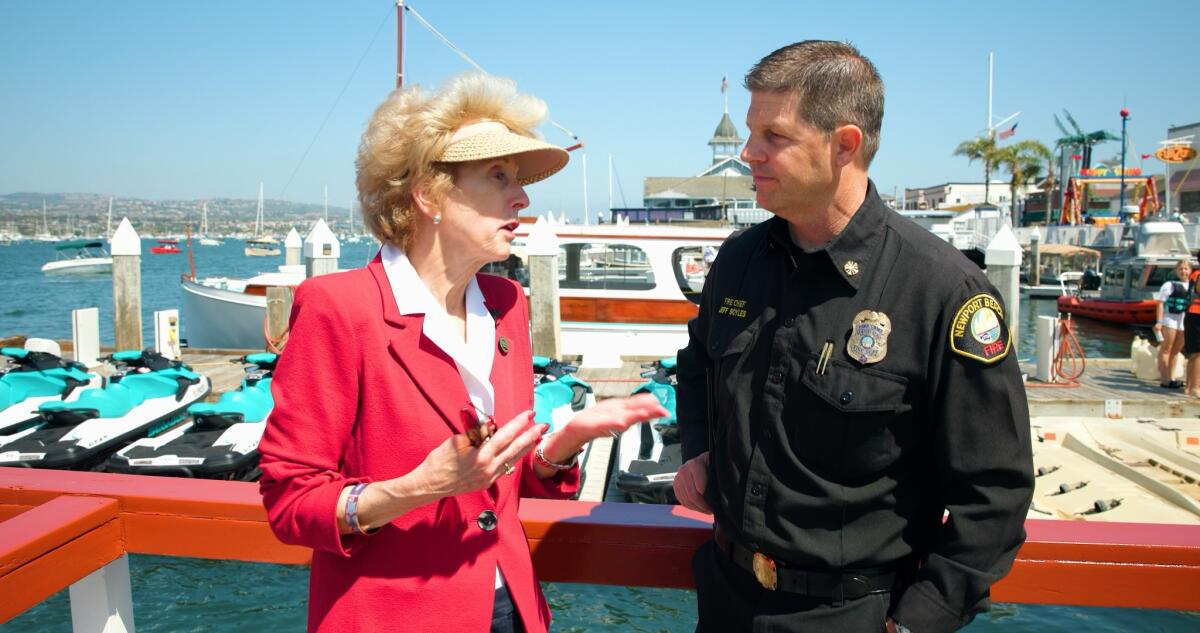Documentary series on the Balboa Island Ferry to be released online

In another effort to call attention to mandates handed down by the California Air Resources Board and their impact on the Balboa Island Ferry, a short documentary series will soon be released online about the ferry and its relationship to the city, according to state Assemblywoman Diane Dixon’s office.
The four-part series, “Save the Ferry,” will begin Oct. 16 and was filmed over the course of a few days in mid-June with the assistance of the California Assembly Republican Caucus. Each segment focuses on a different facet of the ferry’s influence on the community and more broadly on Southern California, the first of which looks at its economic impacts. A new segment will go live every day on Dixon’s YouTube channel.
The state Air Resources Board implemented new regulations in December 2022 that would require short-run ferries, like the Balboa Island Ferry, to use zero-emission engines by the end of 2025. In March, the local ferry service made headlines when word got out that it might have to shut down if it is unable to make the conversions necessary to its three vessels to comply with new state mandates.

Ferry owner Seymour Beek said in March that there was no way of knowing if it would even be feasible for his fleet to meet the demands of the mandate, given the size of its vessels.
In a recent interview, Beek said the ferry service has contracted with a marine engineering company with experience in electrifying vessels to do a study on the energy requirements and the size and weight of a battery needed to power ferries of their size.
Since then, the ferry has launched an online petition that, as of Friday morning, had gathered 28,445 signatures in support exempting the ferry from the new regulations.
“CARB staff have been engaged with Balboa Island Ferry throughout and are available to help them with compliance options, potential extensions and incentives,” said Lynda Lambert, a spokeswoman for the state board on Friday. “In advance of the Oct. 26 application deadline for the Advanced Technology Demonstration and Pilot Projects solicitation, CARB staff encouraged the Balboa Island Ferry to apply for funding support through this and other funding programs.
“CARB also offers its support to other ferry companies as they transition to cleaner technologies that greatly benefit air quality and public health, but to date, it has not received any compliance extension requests nor has the Board or CARB received ‘appeals’ or input from other ferry companies.”
But, as Beek noted, applying doesn’t guarantee access to competitive funds. The Beek family has previously expressed that they sometimes do not qualify for grants and that applying for the extension requires detailed engineering information that they need to pay for out of pocket.
“This is way beyond anything we could afford to do. We’re working on the grant funds and that ain’t easy,” said Beek. “It’s very complicated ... [and applying] there’s no guarantee you’re going to get it even if you apply. We’ve gotten no commitments yet ... and haven’t made much progress, even though we’re trying.”
The hope is that the new short series, which Beek credited to Dixon, will help reinvigorate some of the conversations around the Balboa Island Ferry.
Dixon said she wanted to capture and share stories around the ferry to keep people’s eyes on it but also to help illustrate her point in her talks in Sacramento.
“[CARB] cannot do anything until they have an application in front of them. They’re a public agency. They have to act on information presented to them in the form of an application, ... then they can agendize it and make the decision to grant an extension at that point. But that’s the Catch-22,” said Dixon. “[The Beeks] can’t get the exemption until [they] get the application, but that takes months to do.

“Can you imagine? It’s craziness to put a small business owner through this and he has to do it himself or spend tens of thousands for a legal service and that’s just not right. This issue, while important to Newport Beach, also tells the story of what is in my opinion, California’s anti-business problem.”
Dixon added that she felt it was an important story that highlights more than just one small business in California contending with what she described as “hyper-regulation.”
She said she was hopeful the short series would encourage more individuals to sign the petition and bring wider exposure.
Beek agrees.
“I certainly think [the series] will help with awareness for anybody that watches it about the overreach of CARB to pick on some little operation like us like they’re going to save the world because they’re going to save 26 gallons of fuel a day,” the ferry operator said. “That’s all we use — 26 gallons a day. It’s kind of an overreach and an overkill because the cost of conversion to electric is millions of dollars in comparison.”
Beek said he’s continued to see huge support for the ferry since the news of its financial hurdles in wake of the CARB regulations became public in the spring.
“We’re going through all the motions of trying to comply as best we can, but ... there’s no possible way for us to comply unless we get grant funds.”

All the latest on Orange County from Orange County.
Get our free TimesOC newsletter.
You may occasionally receive promotional content from the Daily Pilot.




